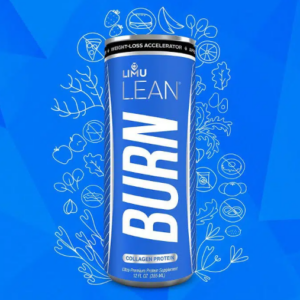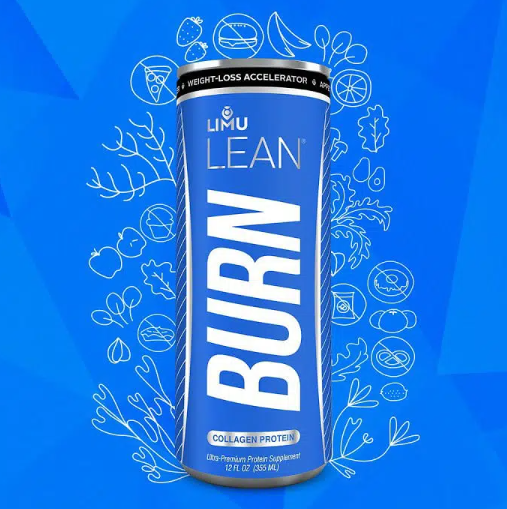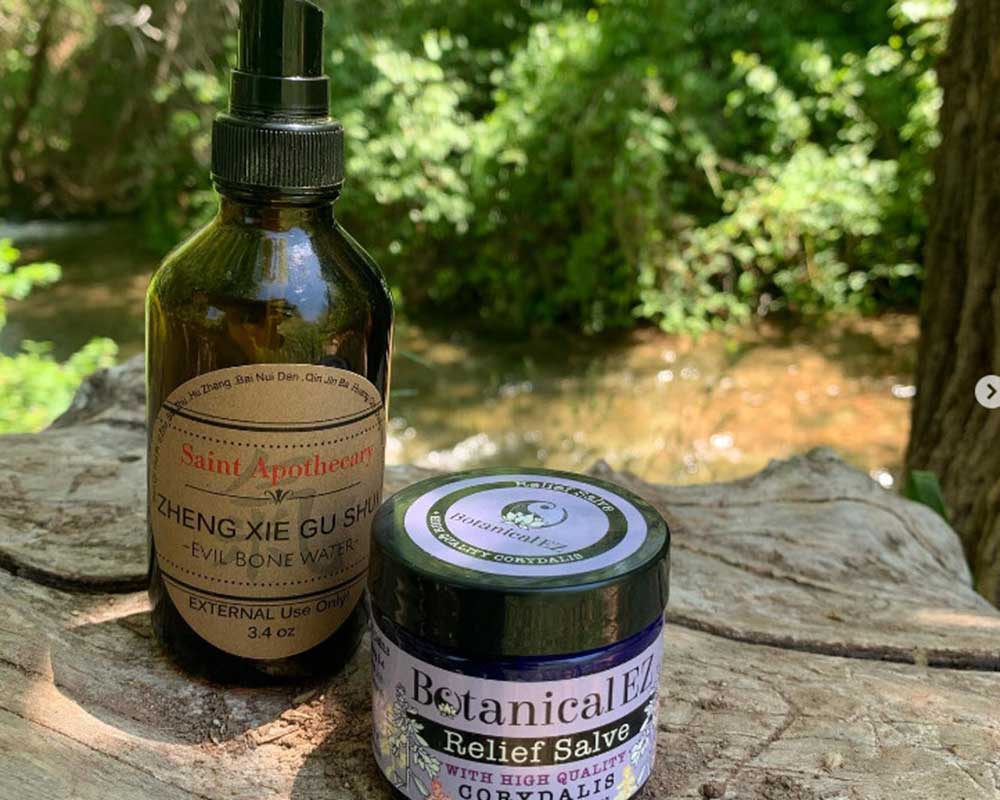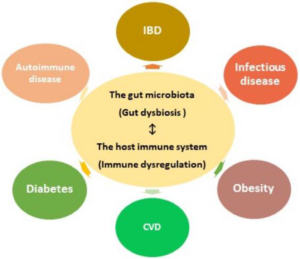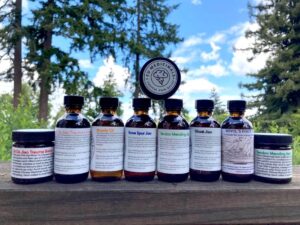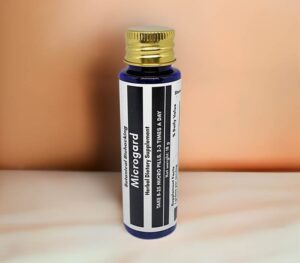Did You Know?
Seaweeds are remarkably dense in vitamins and minerals by weight, making them stand out among various foods. These marine wonders, moving gracefully with the ocean’s currents, have been central in culinary traditions and cultural practices for centuries across diverse societies.
Seaweed
Seaweeds, encompassing a vast range of marine plants and algae, have been entwined with human history and traditions for millennia. They’ve been an indispensable part of the diet in various cultures, notably in coastal regions where they’re abundantly found. Beyond being just a source of nutrition, many societies have valued their therapeutic qualities, turning to them as remedies for many ailments[1]. Whether it’s the Japanese indulging in Nori-wrapped sushi or the Irish relishing a bowl of seaweed soup, the culinary applications of these marine vegetables are diverse and widespread.
On the other side of the dietary spectrum, the contemporary standard American diet paints a contrasting picture. With an increasing reliance on processed foods, many Americans are consuming meals laden with unhealthy fats. While undeniably tasty, pizza, burgers, and fried foods are often associated with inflammation in the body. This inflammation can result in symptoms like warmth, excess mucus or phlegm, and other discomforts. Over time, consistent consumption of such high-fat, greasy foods can throw the body’s digestive system out of balance, leading to a range of digestive issues and potentially more serious health concerns[2].
Gut Health and Seaweed
The gut, often referred to as the body’s “second brain,” is teeming with trillions of bacteria that play a crucial role in our overall health. These microbes, collectively known as the gut microbiota, are vital for the digestion of food, absorption of nutrients, and the regulation of our immune response. When the delicate balance of these beneficial bacteria is disrupted—be it from infections, chronic stress, or prolonged consumption of an unbalanced diet—it sets the stage for digestive irregularities and potentially more severe health issues. Under these conditions, merely introducing probiotics might not suffice in reinstating the gut’s equilibrium. Probiotics can find it challenging to navigate and thrive in a gut environment that’s already out of balance, especially when factors like temperature, moisture, and pressure within the gastrointestinal tract are compromised[3].
Enter seaweed, nature’s understated marine marvel. Beyond its nutritional prowess, seaweed offers unique compounds that can support a healthy gut environment. When consumed, seaweeds can help reestablish favorable conditions for the growth and function of our gut’s beneficial bacteria. It acts like a catalyst, fostering an environment where the natural, beneficial flora can survive and flourish[3].
Drawing from the rich tapestry of traditional diets, East Asian cultures, in particular, have long revered seafood, including seaweeds, for their health-enhancing properties. Consuming specific types of seaweeds is believed to help clear excess phlegm and heat from the body, thereby balancing the body’s internal fluid dynamics and ensuring smoother metabolic processes. The Materia Medica, a monumental work in the annals of ancient Chinese medicine, delves deep into the benefits of various natural remedies. Within its extensive listings, it highlights seaweeds like 昆布 (Kun Bu, or kelp) and 海藻 (Hai Zao, or sargassum). These seaweeds are particularly prized for their potential to alleviate symptoms associated with excess phlegm and to promote healthy urination, further illustrating the time-tested benefits of these marine plants[4]
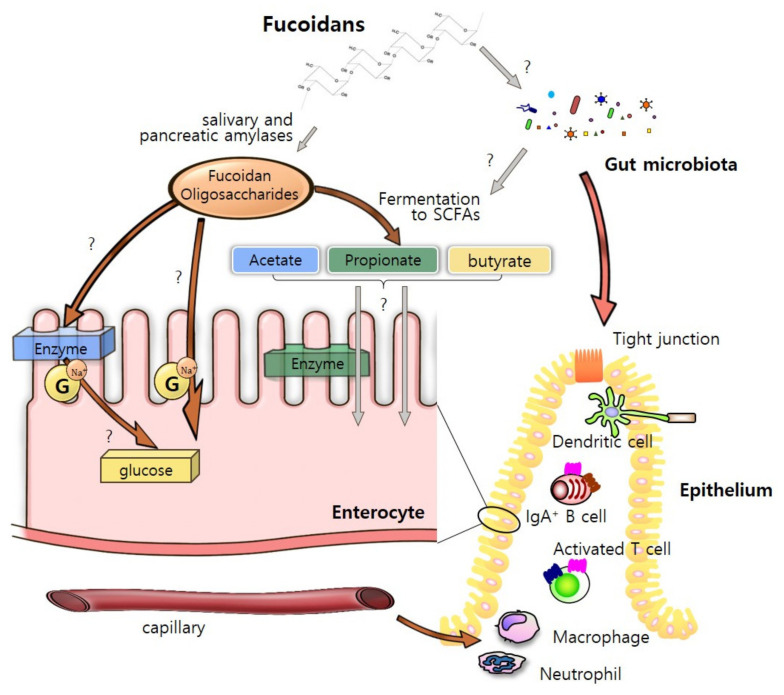
Limu, primarily sourced from *Fucus vesiculosus* and *Undaria pinnatifida* seaweeds, stands out for its significant Fucoidan content. Fucoidan is a unique sulfated polysaccharide found predominantly in brown algae[5]. Its benefits extend to protective effects against intestinal mucosal barrier dysfunction[1], repairing the intestinal mucosa, enhancing immune function, and modulating the gut microbiota[2].
Health Benefits:
Digestive Health:
Limu’s rich fiber content aids in nurturing a healthy gut[6]. Moreover, brown seaweed polysaccharides like fucoidan can regulate the gut microbiota, fostering an environment conducive to the growth of beneficial bacteria while inhibiting harmful ones[6].
– Boosting Immune Function: Regular consumption of Fucoidan has been linked to enhanced immune responses[5]. It also touts significant anti-viral properties beneficial in combating various diseases.
– Weight Management: Limu is a low-calorie, nutrient-dense solution. It can play a role in appetite regulation, helping individuals maintain or even reduce weight[7].
Personal Experience
In my profession as an acupuncturist, I’ve always been intrigued by the intricate connections between nature, diet, and overall well-being. This curiosity led me to experiment with Limu Lean Burn. Touted as a superior blend that marries the highest-quality collagen protein with the unparalleled nutrients found in seaweed, Limu Lean Burn promises lasting results. Its unique formulation, rich in both collagen and seaweed-derived nutrients, piqued my interest, especially given its claims of fostering long-term well-being.
Upon trying Limu Lean Burn for the first time, what stood out was the drink’s satiety effect. I was amazed by how filling it was. The protein-rich content of the drink, combined with the nutrients of the seaweed, seemed to work in harmony to keep me full until past lunch. I often found that after drinking it in the morning, my afternoon hunger pangs were noticeably absent. This was an unexpected but welcomed benefit, especially on busy work days when prolonged gaps between meals were inevitable.
While the taste of Limu Lean Burn was distinct, it wasn’t off-putting. It presented a unique flavor profile, one that was unique but not bad. I definitely recommend drinking it chilled. Over time, this unique taste transformed into something I genuinely looked forward to.
The drink’s influence on my appetite was notably profound. The satiating nature of Limu Lean Burn curbed my tendencies to reach for quick, often unhealthy snacks or to overeat during meal times. I felt I had gained control over my eating habits. I was making more mindful food choices, gravitating towards nutritious options over calorie-laden ones.
Beyond appetite management, Limu Lean Burn seemed to optimize my digestive health. The sporadic digestive discomforts and constipation that I used to grapple with became things of the past. My digestion became smoother, more regular, leading to an overall sense of lightness and well-being.
Incorporating Limu Lean Burn into my routine and coupling it with a balanced diet and regular physical activity was a easy way to make some positive steps. The most evident was the gradual and healthy weight reduction. But beyond the numbers on the scale, it was the overall vitality, the feeling of being reenergized, and in harmony with my body, that truly marked the success of this seaweed-collagen blend.
Conclusion
Limu and seaweed drinks, deeply rooted in ancient medicinal practices, offer an array of health benefits. As with all supplements, it’s crucial to source pure, uncontaminated products to harness these benefits fully.
Each can is packed with 25g of our proprietary certified organic, non-GMO LIMU Seaweed Blend™ featuring Fucoidan, a proven supernutrient backed by science, plus 20g of premium collagen-based protein and 120mg of natural caffeine to promote sustained energy and suppress hunger cravings.
Combine the synergistic effect of our two best-selling topicals. They work together in separate but complementary ways to quickly eliminate your pain.
About the Author
Willard Sheppy is a writer and healthcare practitioner who seamlessly melds scientific knowledge with practical applications in engaging and authoritative articles. He holds a Bachelor of Science in Environmental Science from Oregon State University and a Master’s in Acupuncture and Oriental Medicine from the distinguished Oregon College of Oriental Medicine.
In his work, Willard skillfully combines his extensive educational background in scientific research with his practical experience as a healthcare practitioner. Willard balances his life with martial arts and cherished family adventures. As a father of three, he often leads his family on camping and hiking trips along the breathtaking Oregon coast.
Connect with Willard on LinkedIn at linkedin.com/in/valleyhealthclinic or learn more about his services at valleyhealthclinic.com. Embark on this journey towards holistic health with Willard!
[1]: [Spandidos Publications] https://www.spandidos-publications.com/10.3892/ijfn.2021.24
[2]: [RSC Publishing] https://pubs.rsc.org/en/content/articlelanding/2016/fo/c6fo00309e
[3]: [ScienceDirect] https://www.sciencedirect.com/science/article/abs/pii/S2212619820300127
[4]: [NCBI] https://www.ncbi.nlm.nih.gov/pmc/articles/PMC8401300/
[5]: [NutraIngredients-USA](https://www.nutraingredients-usa.com/News/Promotional-Features/Fucoidan-A-new-wave-in-digestive-health)
[6]: You, Lijun et al. “Beneficial effects of three brown seaweed polysaccharides on gut microbiota and their structural characteristics: An overview.” International Journal of Food Science & Technology 55 (3), 1199-1206, 2020.
[7]: [MSKCC] https://www.mskcc.org/cancer-care/integrative-medicine/herbs/fucoidan


